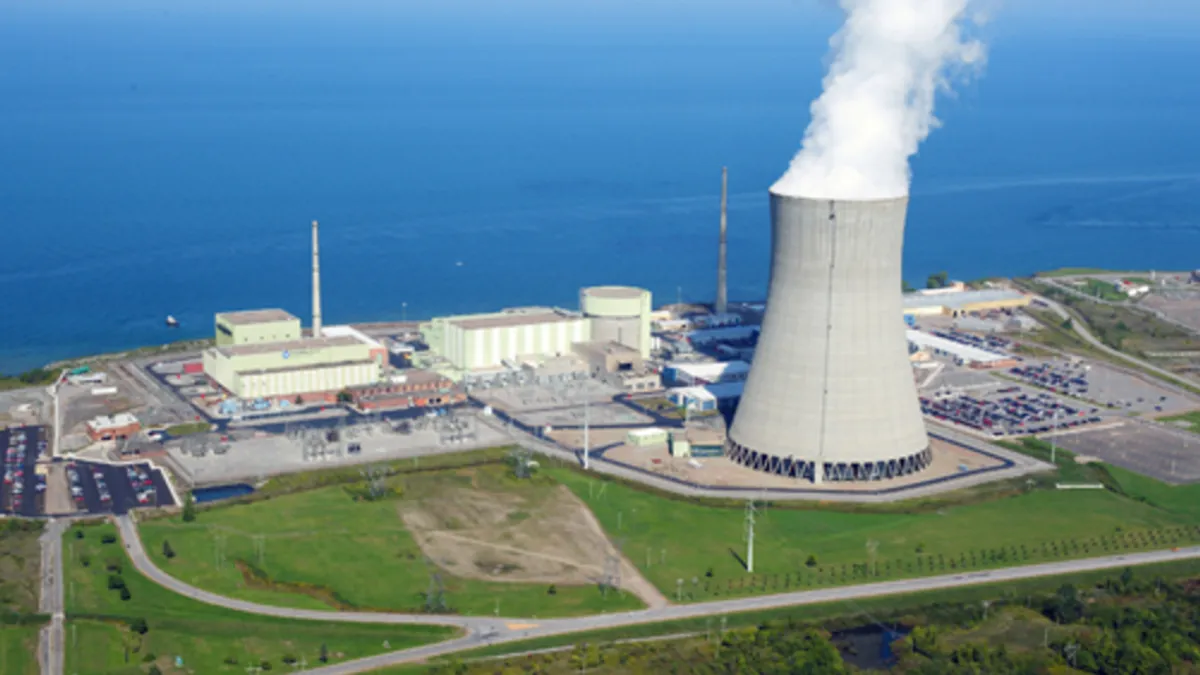Editor's note: An earlier version of this post incorrectly said the New Jersey Board of Public Utilities filed testimony for the bill proposing a study on nuclear emissions credits. The BPU did not take a stance on the proposed legislation.
Dive Brief:
- New Jersey lawmakers are considering launching a study of zero emission credits (ZEC) to support the state's nuclear fleet, similar to moves in New York and Illinois, SNL Energy reports.
- The bill, S-3061, backed by the Public Service Enterprise Group (PSEG), calls for consideration of ZECs, but PJM Interconnection advised lawmakers to address the impacts of those credits on wholesale and capacity markets.
- PJM Interconnection's point underscores a point of contention that has doomed other state efforts to maintain baseload capacity.
Dive Insight:
New Jersey isn't the first state to consider financial credits for nuclear generation, and it seems the industry wants to avoid walking into familiar traps.
PJM urged lawmakers to include potential wholesale impacts—the sticking point where similar ideas have been stopped in the past. The Electric Power Supply Association lent support to those suggestions in a separate filing, and pointed to legal challenges in other states.
Both Illinois and New York have enacted ZEC programs, and each has been challenged.
Monitoring Analytics, the independent market monitor for the PJM Interconnection, has filed in federal court to block ZECs the Illinois legislature passed late last year to support two Exelon Nuclear plants. In New York, Exelon, environmental advocates and the New York Public Service Commission have all filed briefs at the Federal Energy Regulatory Commission defending the state's ZEC program, after merchant generators took issue with it.
Advocates for the ZEC programs argue the credits are meant to value the environmental attributes of nuclear energy—not the energy itself, and are functionally no different than renewable credits that are widely accepted.














